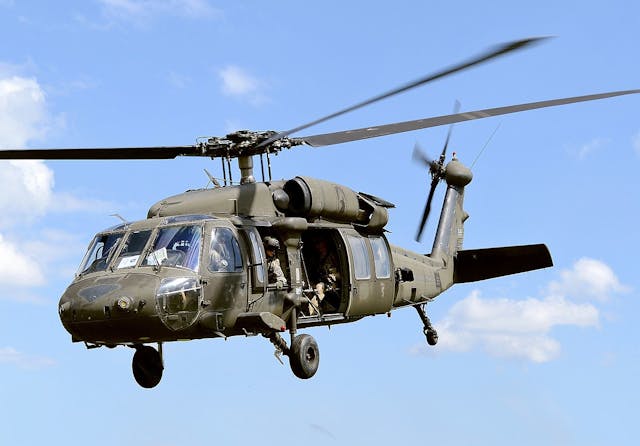Maintenance and Maintenance for UH 60 Helicopters
Maintenance and Maintenance for UH 60 Helicopters
Blog Article
The Impact of Sustainable Practices on the Future of Airplane Workflow and Emissions Reduction
As the aviation market faces increasing scrutiny over its ecological impact, the adoption of lasting techniques emerges as a crucial pathway towards future airplane operations and discharges reduction. Developments in sustainable aeronautics gas and developments in hybrid propulsion technologies stand at the leading edge of this makeover, appealing substantial reductions in greenhouse gas discharges.

Introduction of Sustainable Practices
Lasting practices in airplane operations incorporate a series of approaches intended at reducing ecological effect while preserving operational efficiency. These techniques are essential in the aviation sector's dedication to decreasing its carbon footprint and sticking to global ecological standards. Trick initiatives consist of maximizing flight courses to reduce fuel consumption, enhancing upkeep procedures to ensure aircraft operate at peak effectiveness, and implementing advanced modern technologies such as winglets and lightweight materials that boost aerodynamics.

Engaging and training team on sustainability practices additionally play an essential duty, cultivating a society of ecological duty within companies. On the whole, the assimilation of these sustainable methods not just helps in reducing emissions but also enhances the long-term practicality of the air travel field, ensuring it meets the needs of both clients and regulative bodies while adding to global sustainability objectives.
Cutting-edge Gas Alternatives
Numerous ingenious gas options are emerging as critical solutions to decrease the aviation sector's reliance on standard fossil fuels. Among these options, Sustainable Aviation Gas (SAFs) have gotten substantial attention as a result of their prospective to lower lifecycle greenhouse gas exhausts by as much as 80% compared to conventional jet gas. SAFs are stemmed from different feedstocks, including waste oils, farming residues, and even algae, making them a flexible alternative for the sector.
An additional encouraging alternative is hydrogen fuel, which, when used in fuel cells, produces only water vapor as a by-product. This zero-emission prospective presents a significant chance for decarbonizing flight procedures, especially for short-haul flights and local airplane. Furthermore, electrical propulsion systems are being checked out, leveraging battery innovation to power airplane. While present battery capacity limitations array and haul, ongoing improvements might soon render electrical trips practical for particular applications - uh 60.
Lastly, biofuels originated from biomass are being explored, offering a sustainable option that can be blended with traditional gas. Jointly, these ingenious gas choices stand for an essential action toward accomplishing a sustainable air travel ecosystem, straightening with worldwide discharges reduction targets and boosting the market's ecological stewardship.
Technical Developments in Air Travel

How can technical improvements reshape the future of aeronautics? Advancements such as hybrid and electric propulsion systems are at the forefront, promising significant reductions in fuel consumption and greenhouse gas emissions.
Additionally, the execution of advanced products, such as light-weight composites, adds to boosted aerodynamics and fuel performance. Using expert system and artificial intelligence in flight operations optimizes route preparation and minimizes fuel melt by allowing real-time modifications based upon weather condition and web traffic problems. Furthermore, the advancement of independent and from another location piloted airplane systems stands to transform cargo and guest transportation, potentially raising effectiveness while lessening human mistake.
Additionally, lasting aviation modern technologies, consisting of innovative air website traffic monitoring systems, can minimize and enhance operations blockage, causing reduced discharges during trip. These developments collectively stand for a paradigm change in air travel, assuring a future where sustainability and functional effectiveness are intertwined, consequently sustaining the industry's commitment to minimizing its ecological impact.

Governing Framework and Conformity
In light of the expanding emphasis on environmental stewardship within the air travel field, the regulatory structure regulating airplane procedures is advancing to advertise lasting methods. Regulatory bodies, such as the International Civil Air Travel Organization (ICAO) and different nationwide air travel authorities, are introducing stringent guidelines aimed at decreasing emissions and improving functional efficiency.
These guidelines commonly include the adoption of Sustainable Aviation Fuel (SAF), which has actually been recognized as a key element in attaining reduced carbon footprints. Furthermore, compliance with these regulations needs airlines to implement advanced technologies and operational practices, such as enhanced trip paths and boosted air website traffic administration, to reduce gas consumption.
Additionally, the enforcement of emissions trading plans and carbon offsetting campaigns is ending up being progressively click over here widespread, engaging airlines to keep an eye on and report their exhausts precisely. Non-compliance can result in considerable fines, hence pressing operators to focus on sustainability in their service designs.
Eventually, the advancing regulative landscape not just drives innovation and financial investment in eco-friendly modern technologies yet click to investigate also promotes a society of liability within the aeronautics industry. As these structures continue to create, the focus on lasting practices will certainly be indispensable to attaining the field's long-term environmental objectives.
Future Trends in Aircraft Operations
As the air travel sector adapts to a progressively stringent regulatory environment, future trends in aircraft operations are readied to concentrate on innovative services that further boost sustainability and effectiveness - uh 60. Key growths will likely include the adoption of sophisticated air traffic administration systems, which use real-time data and expert system to enhance trip courses, reducing fuel intake and emissions
Another considerable fad is the enhanced assimilation of sustainable aviation fuels (SAFs) These alternatives to conventional jet gas, obtained from eco-friendly sources, can dramatically lower lifecycle greenhouse gas exhausts. The market's commitment to SAFs will likely speed up as airline companies collaborate with gas producers to make certain accessibility and cost-effectiveness.
In addition, the press in the direction of electrification and hybrid propulsion systems is acquiring energy. Arising airplane layouts will include these technologies, offering quieter and a lot more reliable procedures, especially for short-haul flights.
Conclusion
The fostering of lasting aeronautics gas, paired with innovations in electric and hybrid propulsion systems, is essential for reducing lifecycle greenhouse gas exhausts. Enhancing flight paths and welcoming innovative innovations contribute to a quieter and extra environmentally pleasant air travel field.
Advancements in sustainable aeronautics gas and innovations in hybrid propulsion modern technologies stand at the forefront of this improvement, appealing significant reductions in greenhouse gas discharges.Many innovative gas choices are arising as pivotal services to minimize the air travel market's reliance on conventional fossil fuels - uh 60. Among these options, Sustainable Air travel Fuels (SAFs) have obtained considerable focus due to their possible to reduce lifecycle greenhouse gas exhausts by up to 80% compared to conventional jet fuels.An additional considerable pattern is the enhanced assimilation of lasting aeronautics gas (SAFs) The important link fostering of sustainable aeronautics fuels, paired with advancements in electric and hybrid propulsion systems, is necessary for minimizing lifecycle greenhouse gas exhausts
Report this page